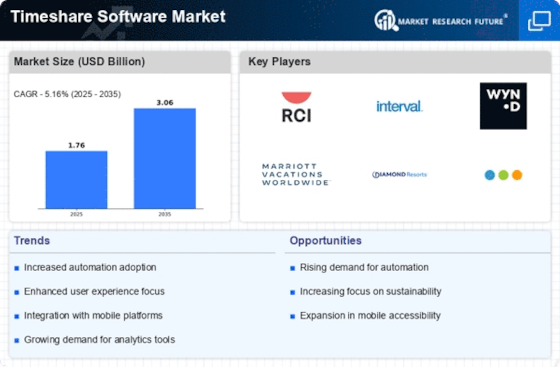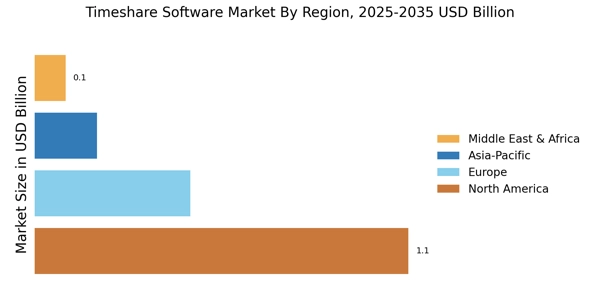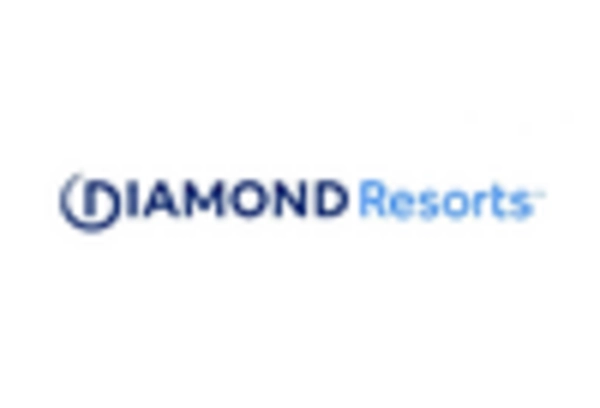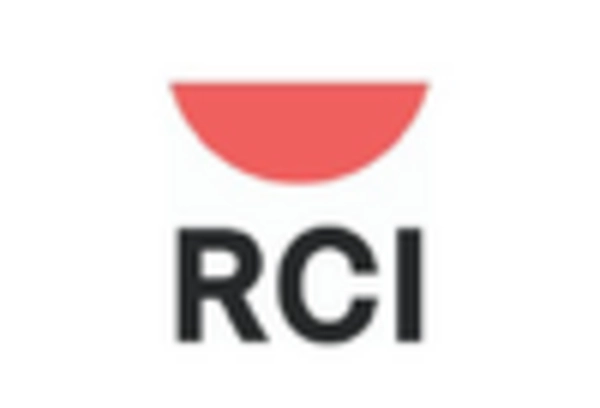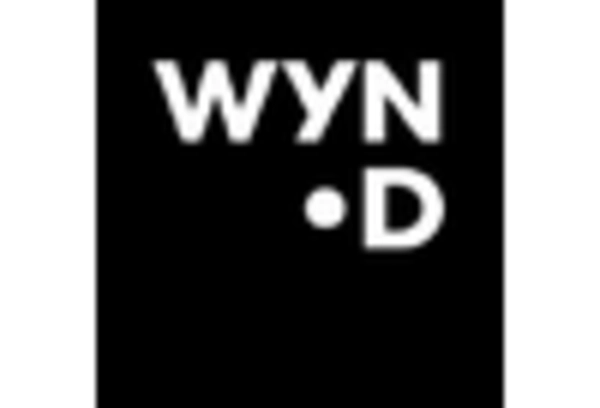Growing Focus on Customer Experience
In the Timeshare Software Market, there is a growing emphasis on enhancing customer experience. Companies are recognizing that providing exceptional service is crucial for retaining customers and attracting new ones. This focus on customer satisfaction is driving the demand for software solutions that streamline communication, simplify booking processes, and offer personalized services. Data suggests that companies investing in customer experience initiatives see higher retention rates and increased customer loyalty. As a result, the Timeshare Software Market is likely to witness a rise in demand for software that prioritizes user-friendly interfaces and efficient customer support.
Increased Demand for Vacation Ownership
The Timeshare Software Market is experiencing a notable surge in demand for vacation ownership options. As consumers increasingly seek flexible travel arrangements, the appeal of timeshare properties has grown. This trend is supported by data indicating that the timeshare industry has seen a steady increase in sales, with a reported growth rate of approximately 7% annually. This rising interest in vacation ownership necessitates advanced software solutions to manage bookings, customer relations, and property maintenance efficiently. Consequently, software providers are innovating to meet the evolving needs of timeshare companies, thereby driving growth in the Timeshare Software Market.
Regulatory Compliance and Risk Management
The Timeshare Software Market is increasingly influenced by the need for regulatory compliance and effective risk management. As governments implement stricter regulations regarding timeshare sales and consumer protection, companies must ensure their software solutions are equipped to handle compliance requirements. This includes features for tracking transactions, managing contracts, and ensuring transparency in operations. The demand for software that can assist in navigating these regulatory landscapes is expected to grow, as companies seek to mitigate risks associated with non-compliance. Thus, the Timeshare Software Market is likely to expand as providers develop solutions that address these critical needs.
Rise of Online Marketing and Sales Channels
The rise of online marketing and sales channels is transforming the Timeshare Software Market. With an increasing number of consumers turning to the internet for travel planning and bookings, timeshare companies are compelled to enhance their online presence. This shift necessitates sophisticated software solutions that can manage online sales, marketing campaigns, and customer engagement effectively. Data indicates that companies leveraging digital marketing strategies experience higher conversion rates and improved customer reach. Consequently, the demand for software that supports online marketing efforts is expected to drive growth in the Timeshare Software Market, as businesses adapt to changing consumer behaviors.
Technological Advancements in Software Solutions
Technological advancements play a pivotal role in shaping the Timeshare Software Market. The integration of cutting-edge technologies such as artificial intelligence and machine learning into timeshare management software enhances operational efficiency and customer experience. For instance, AI-driven analytics can provide insights into customer preferences, enabling companies to tailor their offerings. Furthermore, the market is witnessing a shift towards cloud-based solutions, which facilitate real-time data access and collaboration among stakeholders. This technological evolution is expected to propel the Timeshare Software Market forward, as companies increasingly adopt innovative solutions to stay competitive.


